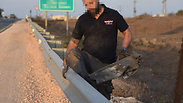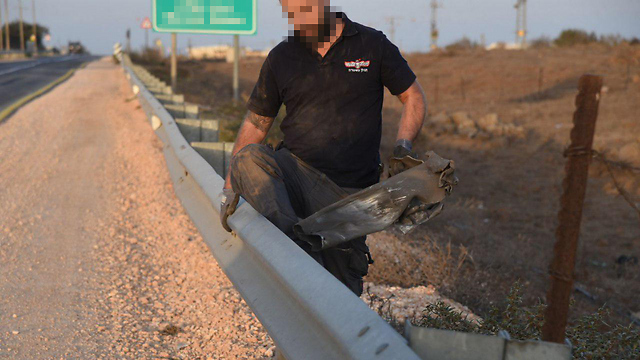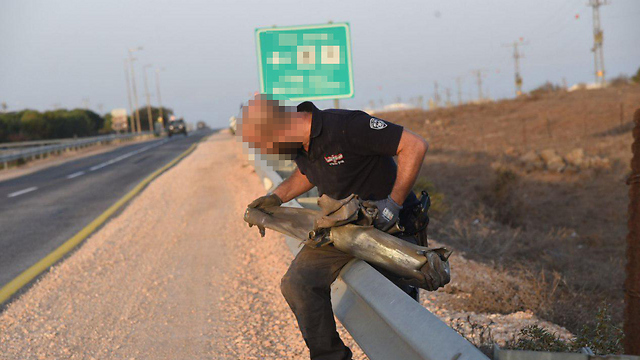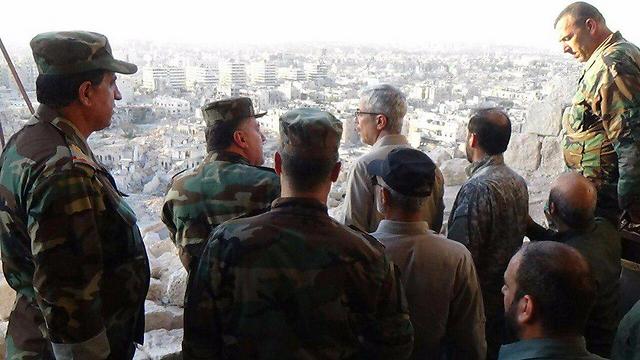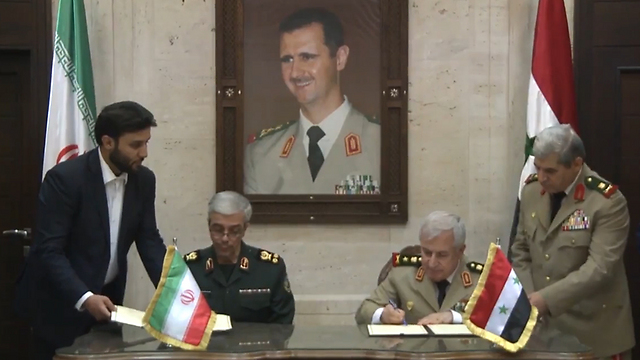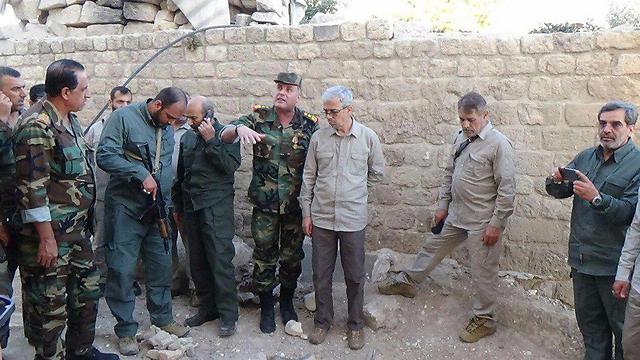
Syria warns UN of 'grave consequences' to Israeli fire
Following Israel's retaliatory fire at Syrian targets that fired rockets into Israel earlier Saturday, Syrian FM demands UN rebuke Israel, saying that Israel's response goes against UN Charter; Israel, meanwhile, warns Syria that continued rocket spillover will be met with harsher response.
The Syrian Foreign Ministry sent two letters, to the UN secretary-general and to the Security Council president, on Saturday, following the Israeli retaliation on Quneitra in response to rocket spillover from Syrian in-fighting. The letter stated that "Syria warns again of the the grave consequences of such repeated aggressive acts" and demanded the UN rebuke Israel's actions.
Syria's Foreign Ministry called the Israeli response "a new chapter" in what it refers to as "the Israeli occupation" of the Golan Heights, and another attempt to support rebel factions in Syria, fighting against Syrian President Bashar al-Assad's regime.
In addition, Syria claimed that Israel's retaliation was a challenge to the Security Council itself, saying that they constitute a violation of the principles and objectives of the UN Charter and the rules of international law and all relevant resolutions.
The IDF announced early Saturday that five rockets were fired at Israel by Syrian artillery cannons, and that it had pinpointed the landings of four of them to open areas in the northern Golan Heights, causing no damage to people or property. The cannons who shot at Israel were then destroyed by the IDF in a retaliatory strike.
The Israel Defense Forces reported that five rockets were fired at Israel in the northern Golan Heights, and that four hits have been identified in Israeli territory. The IDF Spokesperson's Office said, "Even if this is a leak, it is an unusual event, and the continuation of such events will be met with a tougher Israeli response. The IDF will not tolerate any attempt to undermine the sovereignty of the State of Israel and the security of its citizens. The IDF views the Syrian regime as responsible to what is happening on the ground. "
The initial alarm sounded a little after 5am in several Golan Heights towns, prompting their denizens to enter shelters. Some 30 minutes after the alarm, residents were allowed to return to their homes.
In retaliation to the errant fire, the IDF attacked three Syrian regime artillery cannons, the IDF Spokesperson's Unit said.
The attack was carried out using precise Spike NLOS (No Line of Sight), or Tamuz, missiles.
Rocket fired from Syria and landing in Israel recovered still smoking
The Syrian army issued a statement regarding the IDF shelling, saying it came after "Syrian opposition fighters fired mortar rounds that hit an open area in the Israeli-occupied Golan giving the Jewish state a pretext to bomb the army."
The Syrian army added the shelling caused material damage without saying if there were casualties, and warned against such action, adding that it "holds Israel fully responsible for the consequent results".
Meanwhile, during Iranian army Chief of Staff Maj.-Gen. Mohammad Bagheri's visit to Syria on Saturday, the two countries signed a memorandum of understanding in which they agreed up upgrade the cooperation and coordination between their two armies.
The Iranian-Syrian collaboration will reportedly focus mostly on training drills, an exchange of combat-centric know-how, intelligence, military technology and anything to do with the two countries' ability to combat terrorism and standing against "Zio(nist)-American schemes."
Syrian Chief of Staff Gen. Ali Abdullah Ayyoub signed the memorandum on behalf of his country.
Syrian and Iranian army chiefs of staff sign memorandum of understanding
In the past few days the Iranian chief of staff conducted a rare visit to Syria, during which he met with top Syrian government and military officials, among them President Assad.
